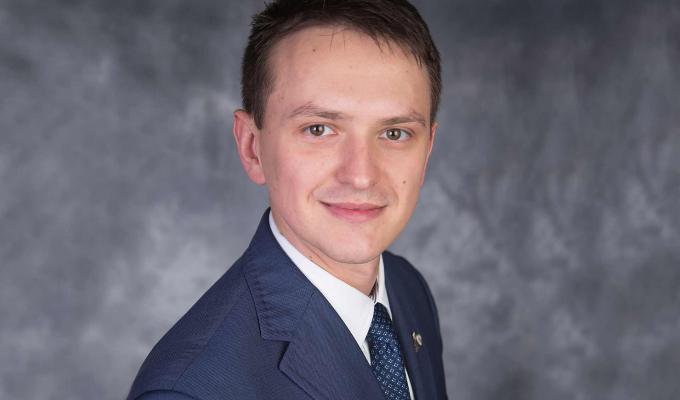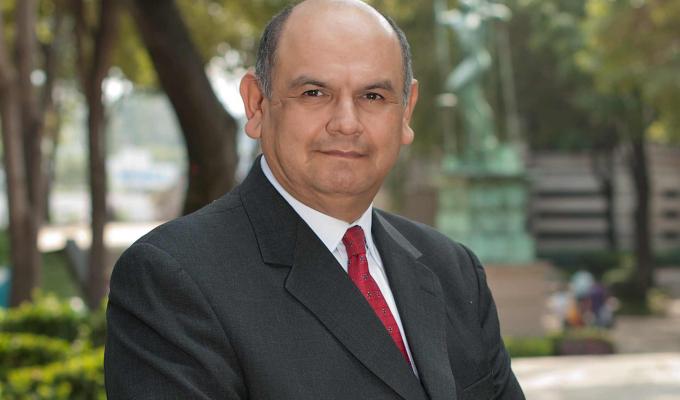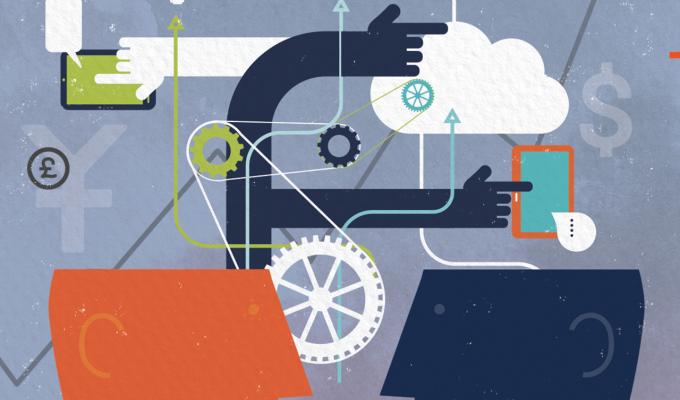Proof
The last televised presidential debates included a box with an interpreter inset at the lower right-hand corner of the screen. However, this box was too small for the members of the deaf community who watched the debate from their homes. It is possible to add subtitles, or closed captions (cc), but most deaf people cannot read. Moreover, there are websites that offer a larger picture with MSL interpreters, but not all deaf people have Internet access.
Gerardo Monsivais, the deaf co-founder of Dilo en Señas (Say it in Sign Language), acknowledges that he is concerned about this issue because it formed part of the voting process. "In the first debate, the interpreter couldn’t be seen; the interpreter was good, but the picture was small. I was hoping that there would be a bigger inset in the second debate, since Margarita Zavala had resigned her candidature and her space could have been used to make the inset bigger."
Oscar Tadeo Tavitas, a deaf professional with a Bachelor’s in Industrial Design from Tecnológico de Monterrey, agrees that the interpreters in the presidential debate are good in general terms, and comments that "sometimes we criticize them because the television format is bad, with a very small, difficult-to-see inserted picture.” He also says that the lack of sign language interpreters in government institutions “is a lack of respect for our culture and a violation of our human rights."
Daniel Maya, president of the Mexican National Association of Sign Language Interpreters and Translators (AIT), admits that "in the first debate, there were interpreters who were certified and accredited by the national associations of interpreters. They also took courses at the Federal Electoral Tribunal to understand the issues involved in the electoral process and were trained to be able to interpret the debate. Not all interpreters have the knowledge in electoral matters to be able to interpret the debates."
The president of AIT states that the interpreters in the first debate were people who could hear, but with the skills and abilities to interpret. Something that few people know is that in the second debate there were deaf interpreters, who also have interpreting skills and were prepared by the AIT to be interpreters. However, Maya explains that not all deaf people can be interpreters, since special knowledge and skills are needed, as well as a great deal of training.
From bilingual speaker to deaf interpreter
There are few associations in Mexico with experience in training interpreters. However, the Mexican National Association of Sign Language Interpreters and Translators is collaborating with the Mexican National Union of the Deaf to prepare a teaching program for interpreters, as well as an evaluation that CONADIS (Mexican National Council for the Inclusion and Development of People with Disabilities) wants to present for interpreter training and evaluation. Daniel says: "Nothing new needs to be invented. There are already international standards on the evaluation of interpreters in oral languages and these can also be applied to sign language interpreters."
Being an interpreter is a profession, not an occupation. Not every person who can sign can automatically be an interpreter. Professional training is required. "Being a bilingual speaker does not convert anyone into an interpreter; professional training is required for anyone to be called an interpreter," says Daniel.
Olinda Perla Treviño González, founder and former President of the Association of Deaf People of Nuevo León, Member of the Advisory Council of Persons with Disabilities of Monterrey, and current Vice President of the UNSM (Unión Nacional de Sordos de México, A.C. (National Union of the Deaf of Mexico)), was the first deaf director in Mexico. Perla considers it "extremely important that there be interpretations in the mass media."
Regarding the interpretation of the presidential debates, Perla believes that: "It is really good that competent people were selected. For the first time in history, we have seen the figure of the deaf interpreter. Mexican Sign Language Interpreters (IMSL) were trained for this activity. I feel proud because it empowers deaf people and places us as professionals in public events, with the public eye focused on our abilities and recognizing us as subjects with rights."
There are some associations that are dedicated to training IMSLs. There are also "competent self-taught people who have carried out studies on interpretation, who share work experiences, attend congresses, symposia, seminars and permanent courses, and remain in permanent contact with the deaf community," affirms Treviño. She assures us that "the recognition of IMSLs is the result of their local deaf communities accepting their work."
Inclusion in companies
Regarding companies, Daniel Maya proposes that "at least a part of the Human Resources Department should learn the basics of sign language and there should be videotaped instructions, regulations, manuals and contracts in sign language."
Oscar believes it is important "first, to sensitize the human resources staff and then the personnel in general about the treatment of the deaf community and, if possible, have at least one person who can communicate in MSL."
To be more inclusive, Perla believes that companies should change their paradigm with regard to the deaf, and "stop seeing deaf people as people with a deficiency, rather looking at them as people who are different from the listener, with a culture and language of their own. This makes room for a more inclusive language and the creation of working contexts with accessibility."
Treviño believes that companies should have training to create bilingual contexts where Sign Language is included and an IMSL is incorporated.
In financial institutions, for example, "employees should be trained on how to deal with deaf people, since sometimes the procedures to apply for a loan or cancel a bank account are carried out by phone, making it difficult for a deaf person to complete the process personally. It is usually unacceptable for a person who can hear to conduct such processes on behalf of the deaf person, since the voice of the process owner must be recorded to initiate and conclude instructions. Some of my friends have had to go to the Bank Manager as witnesses to the process to open an account or cancel the service," concludes Perla.
We constantly take our access to information for granted. In fact, we very often unintentionally absorb information, by listening to something on the street, on the radio, on the way to work, or reading on social networks by chance. However, in reality, millions of Mexicans cannot communicate orally. Moreover, the overwhelming majority cannot read or write, because our school system is not sufficiently inclusive and, unfortunately, our society is not yet inclusive either.
However, we know that partnering with groups that tend to be excluded is key. We must do nothing for them without them. In addition, in general terms, we are seeing that younger generations have a vision of social justice and wider inclusion than we had ever seen before. Also, although there is still a long way to go, there are many people striving to achieve a more inclusive country. There are things we can do from our own standpoint: talk to our company/organization to see what they are doing to be more inclusive; take a Mexican Sign Language Class; sign petitions; support inclusion projects; discuss the topic of inclusion at the dinner table; and many more. It is up to us to implement this change.




